When it comes to achieving a healthy diet, balancing protein, carbs, and fats is key. Each of these macronutrients plays a crucial role in the body, and finding the right balance can help you achieve your health goals and improve your overall wellness.
Key Takeaways:
- Protein, carbs, and fats are all important macronutrients that the body needs to function properly.
- Protein supports muscle growth, repairs tissues, and contributes to overall satiety.
- Complex carbohydrates provide sustained energy and essential nutrients, while simple carbs should be limited for optimal health.
- Healthy fats support brain function, hormone production, and overall cell health.
- Balance protein, carbs, and fats in a sustainable way by focusing on portion sizes, meal planning, and incorporating whole foods into your diet.
Understanding Macronutrients: Protein, Carbs, and Fats
Macronutrients refer to the three main components of a healthy diet - protein, carbohydrates, and fats. Each of these macronutrients plays a unique and vital role in maintaining optimal health.
Protein: This macronutrient is essential for building and repairing tissues. It also plays a key role in muscle growth and immune function. Good sources of protein include lean meats, fish, eggs, tofu, and legumes. It is recommended that adults consume 0.8 grams of protein per kilogram of body weight each day.
Carbohydrates: Carbs are the body's primary source of energy. Complex carbohydrates, such as whole grains, fruits, and vegetables, provide sustained energy and essential nutrients. Simple carbohydrates, such as sugar and refined grains, should be limited. The recommended daily intake of carbohydrates for adults is 45-65% of total calories.
Fats: Fats are important for brain function, hormone production, and overall cell health. Healthy fats, such as those found in olive oil, avocados, and nuts, should be emphasized in the diet. Saturated and trans fats, found in butter and processed foods, should be limited. The recommended daily intake of fat for adults is 20-35% of total calories.
The Role of Protein in a Balanced Diet
Protein is an essential macronutrient that plays a crucial role in the body. It is responsible for building, repairing, and maintaining tissues and organs, including muscles, bones, and skin. Consuming adequate protein is especially important for active individuals and athletes as it supports muscle growth and recovery.
Protein also promotes satiety, helping to regulate appetite and prevent overeating. This is because protein takes longer to digest than carbohydrates and fats, keeping you feeling fuller for longer periods of time.
It's important to incorporate a variety of protein sources into your diet, including lean meats, poultry, fish, eggs, dairy, beans, nuts, and seeds. Aim for at least 20-30 grams of protein per meal to support optimal health and wellness.
The Importance of Carbohydrates in a Balanced Diet
Carbohydrates are one of the three main macronutrients that our bodies need to function properly. They provide energy for all our daily activities, including exercise and brain function.
There are two types of carbohydrates: complex carbs and simple carbs. Complex carbs can be found in whole grains, vegetables, and fruits. These foods are high in fiber and essential nutrients, making them an important part of a healthy diet. Simple carbs, on the other hand, are found in sugary foods and refined grains. These should be limited for optimal health.
Complex carbs provide sustained energy, while simple carbs can lead to blood sugar spikes and crashes. Eating too many simple carbs can also contribute to weight gain and increase the risk of chronic diseases.
To ensure that your diet is balanced, aim to include a variety of complex carbs in your meals. This can include whole grain bread, brown rice, quinoa, sweet potatoes, and leafy green vegetables. These foods will not only provide the energy you need but also support your overall health and well-being.
The Role of Fats in a Balanced Diet
While the mention of fats often brings to mind negative connotations, healthy fats play a vital role in supporting various bodily functions.
Healthy fats, such as those found in avocados, nuts, and oily fish, are rich in omega-3 and omega-6 fatty acids, which are essential for brain function, hormone production, and overall cell health.
On the other hand, unhealthy fats, such as saturated and trans fats, should be limited in the diet. These fats can increase the risk of heart disease and other health complications.
Incorporating healthy fats into meals can be as simple as adding avocado slices to a sandwich or using olive oil in salad dressings. It's important to focus on variety and moderation to maintain a balanced and nutrient-rich diet.
Balancing Protein, Carbs & Fats for a Sustainable Diet
Now that you understand the importance of balancing protein, carbs, and fats in your diet, it's important to know how to do so sustainably. Here are some tips:
- Plan ahead: Take the time to plan your meals for the week, and make sure they include a variety of protein, carbs, and healthy fats. This will help you stay on track and avoid reaching for unhealthy snacks.
- Portion control: While it's important to include all three macronutrients in your meals, it's also important to be mindful of portion sizes. Use a food scale or measuring cups to ensure you're eating the right amount of each macronutrient.
- Incorporate whole foods: Instead of relying on processed foods, focus on incorporating whole foods into your diet. This includes foods like fruits, vegetables, whole grains, and lean protein sources.
- Moderation is key: Don't completely cut out any particular macronutrient, as each one serves an important role in your health. Instead, aim for balance and moderation.
By following these tips, you'll be well on your way to achieving a balanced, nutrient-rich diet that supports your health and wellness. Make sure to prioritize your nutritional well-being. Incorporating these tips into your lifestyle will help you unlock your healthy diet goals and achieve overall wellness.





